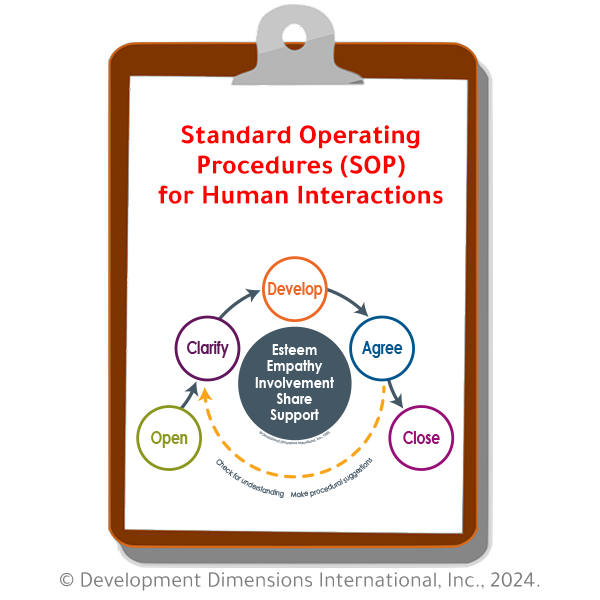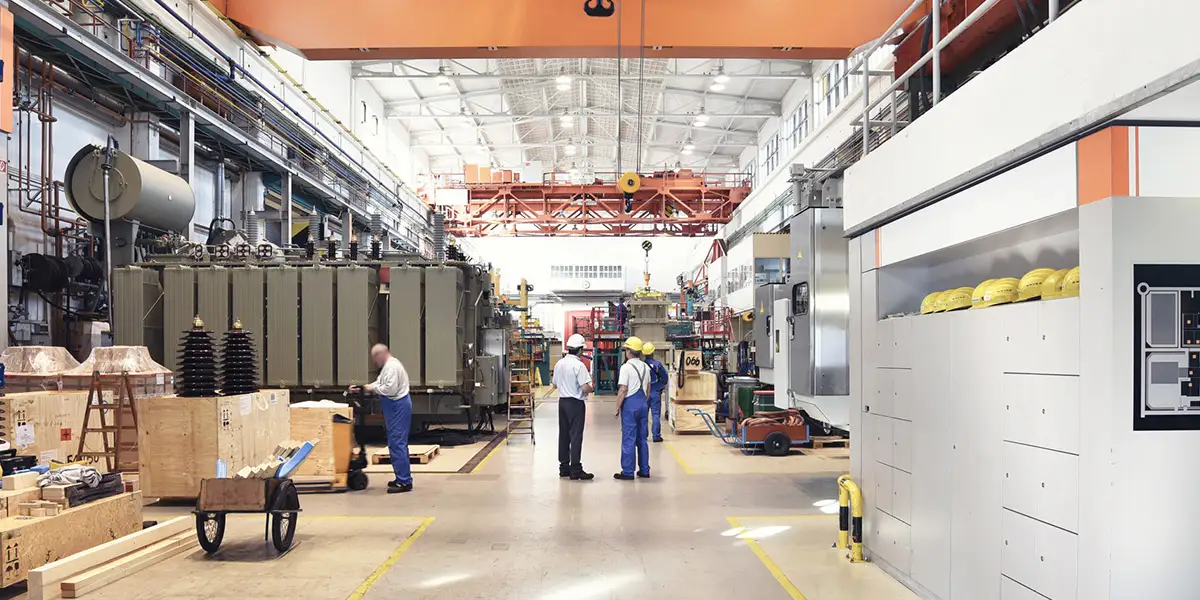The Need
To meet growth targets, leaders at Hitachi Energy needed to drive collaboration, innovation, and engagement.
The Solution
Launch a leadership training program with a DDI Leadership Development Subscription to build core skills in frontline leaders.
The Result
Turnover dropped by 80% for salary employees and 25% for hourly employees, with savings of $20M over 18 months following the launch of the program.
Providing Supervisors with Skills to Drive Growth
Hitachi Energy’s North American Transformer business was expanding rapidly. To continue growing, they needed to keep employees engaged and reduce turnover in order to deliver on their book of business and customer expectations.
Hitachi Energy knew that leaders directly impact engagement and turnover. They could improve both by equipping leaders with core skills to grow and retain strong teams. But many of their supervisors and frontline leaders lacked the experience and foundational skills to be effective. Ninety percent had been with the organization for fewer than two years. Many were first-time leaders, and had never fostered collaboration, innovation, and growth in a formal leadership role.
So, Hitachi Energy partnered with DDI to create targeted development for supervisors and frontline leaders in North America. The program focused on providing leaders with the core skills and standard operating procedures (SOP) for all human interactions to impact key metrics like absenteeism, attrition, engagement, and their Employer of Choice Index.
A Common Leadership Language Based on Core Skills
Mike Von Bargen, Global Operations Training Manager at Hitachi Energy Transformers, led the training and development team. He envisioned building a common leadership culture across all transformer sites in North America. DDI has partnered with Hitachi Academy, the company’s global learning and development university, and other Hitachi businesses worldwide for nearly two decades. So Mike knew there was no better partner for the job.
Using DDI’s Leadership Development Subscription, Hitachi Energy and DDI built a development program that would teach frontline leaders core skills. Courses include skill practice and industry- and role-specific examples to ensure supervisors could connect new behaviors to common, on-the-job situations.

The program develops skills in what Hitachi calls The 3C’s: Communication, Coaching, and Conflict. Materials characterize behaviors as an “SOP for human interactions” on the plant floor—a structural framework familiar to supervisors from lean and safety procedures. Participants discover how models like the Interaction EssentialsSM and Key Principles create more effective interpersonal interactions while also establishing a common leadership language between supervisors and seniors across the business.
The program also kept development going outside of the classroom. Participants could use self-paced digital tools to access personalized learning recommendations that refresh and reinforce key concepts as well as develop additional leadership skills.
You can have all the latest technology and state-of-the-art equipment available, but still without trained and motivated people to operate it, it will be just a piece of steel.
Bartek Wielebnowski, Global Operations Manager, Hitachi Energy
Real, Measurable Results
To measure the success of the program, Hitachi completed an Impact Evaluation following the training of more than 750 plant supervisors across North America. More than two-thirds of supervisors reported that the program increased their engagement and the engagement of their teams, and 92% said they were engaged in their jobs.
Participants also said:
- “I felt challenged to think about my future and what I can do to better myself.”
- “The tools, techniques, and principles were super relevant. I can start applying them NOW!”
- “It showed me that the company is interested in helping develop future leaders.”
- “I felt emotionally safe to share my own experiences.”
Critical business metrics escalated post-launch as well. The Hitachi Energy Employer of Choice Index score almost doubled in just over a year—jumping from 45 to 85 (out of 100) and turnover dropped 80% for salaried and 25% for hourly employees. Hitachi Energy estimates they saved $20M over the 18 months following the launch of the leadership development program through this turnover reduction and significantly increased the number of engaged employees.
The positivity of the team members was palpable as I toured the factory. I can tell that investing in our people’s development is encouraging our employees and building trust in the organization.
CP Vyas, Head of Global Operations, Hitachi Energy
What’s Next?
With the success of The 3C’s program, Hitachi Energy is continuing with quarterly development offerings, based on the needs of each site.
Next, they are planning their expansion globally, not only with the supervisory program, but with programs for all leader levels across the Hitachi Energy Transformer business. They aim to create a common leadership language and culture around the globe that will drive successful business results.
Learn more about DDI’s Leadership Development Subscriptions.
Have a Question?
Frequently Asked Questions
-
What are effective strategies to develop manufacturing frontline leaders?
Hitachi Energy used a structured leadership development program focused on key supervisor/frontline skills, especially the “3C’s” (Communication, Coaching, Conflict). They tied key skills to their standard operating procedures so behaviors became the familiar expectation on the manufacturing plant’s floor. They blended classroom training, role-based examples, and digital, self-paced refreshers, allowing leaders to immediately apply new behaviors and reinforce their learning.
-
What challenges do frontline leaders face in high-growth environments?
High growth creates unique leadership pressures: rapid scale strains existing processes, constant change disrupts team stability, and evolving priorities demand quick adaptation. Many frontline leaders, as in Hitachi’s example, are new in their roles. This combination means they must master fundamental leadership skills while simultaneously navigating organizational transformation, all under intensified expectations for engagement, performance, and retention.
-
Why is it important to focus on developing frontline leadership?
Frontline leaders directly influence how organizational goals translate into business outcomes—they're the critical link between strategy and execution. Through their daily interactions and decisions, they shape employee experience, engagement, retention, and operational performance, all of which drive bottom-line results. Hitachi’s case demonstrates that investing in their development yields measurable improvements in key business metrics and significant cost savings from reduced turnover.
-
How can frontline leaders support high growth in an organization?
Frontline leaders are crucial multipliers of organizational strategy during growth periods. They translate company goals into day-to-day actions, ensuring teams stay aligned with evolving priorities. Whether the focus is rapid scaling, market expansion, or product innovation, frontline leaders bridge the gap between executive vision and ground-level execution. Their direct relationships with team members also create stability during change—maintaining productivity, preserving culture, and keeping talent engaged when the organization needs it most.
-
What skills do frontline leaders need to drive growth?
In high-growth environments, frontline leaders need skills that help them manage constant change. This includes quickly onboarding new team members, adapting processes as the organization scales, and maintaining quality standards despite rapid expansion. Beyond individual capabilities, growth requires organizational alignment. Frontline leaders across teams and locations must share a common leadership approach and language. This consistency ensures that whether you're in the headquarters or a new satellite office, teams are executing growth strategies in the same effective way.
Topics covered in this blog


